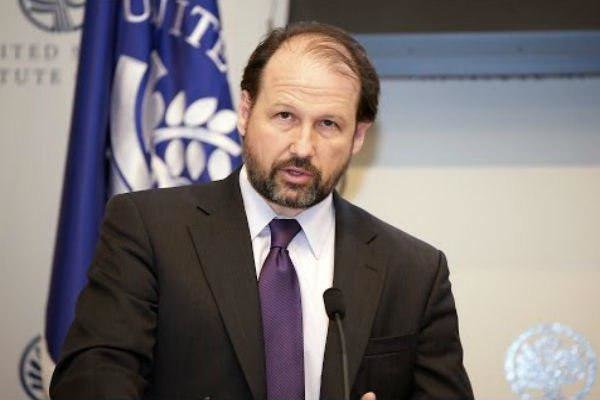U.S. should respect its nuclear sanctions relief commitments: Kimball

TEHRAN - Daryl Kimball, executive director of the Arms Control Association in Washington, is the opinion that “all parties must continue to respect their JCPOA commitments.”
“The United States should continue to respect its nuclear sanctions relief commitments outlined in Annex II of the JCPOA and should "refrain from imposing discriminatory regulatory and procedural requirements in lieu of the sanctions and restrictive measures covered by this JCPOA,” Kimball tells the Tehran Times in an exclusive interview.
Following is the full text of the interview:
Q: According to this, what means “complementary access inspections to sites and locations in Iran”? Is this access beyond the Additional Protocol?
A: Complementary access refers to inspections under the Additional Protocol that complement the underlying Comprehensive Safeguards Agreement between Iran and the IAEA to ensure that Iran’s nuclear activities remain exclusively peaceful. See https://www.iaea.org/publications/factsheets/iaea-safeguards-overview Under the Additional Protocol, the IAEA is to be allowed access to undeclared sites whether they are designated as “military” or “civilian” if the Agency has good cause to pursue an inspection of that site.
Q: Why U.S. again try to bring up Iran PMD Case in IAEA?
A: The Trump administration appears to be urging the IAEA to exercise all of its authorities to verify that Iran’s nuclear program is exclusively for peaceful purposes and the IAEA DG has made it clear that the IAEA has been able to conduct all the inpections it has requested and that it believes is necessary to verify Iran’s compliance with the JCPOA to this point.
Q: IAEA Director General ask Iran for “more” verification about Section T. It seems that Director General Yukiya Amano’ message is closing to Nikki Haley, United States Ambassador to the United Nations. What is your opinion?
A: IAEA DG Amano and most of the EU3+3 states interpret Section T of the JCPOA as mandating that it is the Agency’s responsibility to verify that Iran is not engaged in any experiments that could be used to design nuclear warheads (i.e. experiments with possible military dimensions or PMDs), which some Iranian scientists and entities are believed to have done prior to 2003. However, Amano acknowledges that the IAEA’s ability to verify compliance is limited and has sought clarification from the JCPOA Joint Commission on the matter. Russia, for its part, believes that verification of Section T should be the responsibility of the members of the Joint Commission given their more extensive experience with nuclear weapons design. Amano’s position is not favoring one country’s view over another’s, he is understandably seeking clarification of the IAEA’s responsibilities with respect to verification of Iran's compliance with the JCPOA.
See: https://www.reuters.com/article/us-iran-nuclear-iaea/iaea-chief-calls-for-clarity-on-disputed-section-of-iran-nuclear-deal-idUSKCN1C12AN
Q: Iran's Ambassador to the IAEA Reza Najafi highlighted that “ by limiting Iran’s benefits from the deal the US Government in contradiction with both letter and spirit of the agreement, particularly paragraphs 26, 28 and 29 of the JCPOA, has taken a negative approach to undermine “successful implementation” of the JCPOA.” This statement is while U.S. try to place sanction Iran on the name of Human Rights and terrorism. What will happen for JCPOA if Iran limited from benefiting of the agreement?
A: Iran is benefitting from the sanctions relief promised by the JCPOA and there has been a significant uptick in trade and investment since the JCPOA’s implementation day. Going forward, all parties must continue to respect their JCPOA commitments. The United States should continue to respect its nuclear sanctions relief commitments outlined in Annex II of the JCPOA and should "refrain from imposing discriminatory regulatory and procedural requirements in lieu of the sanctions and restrictive measures covered by this JCPOA."
Leave a Comment